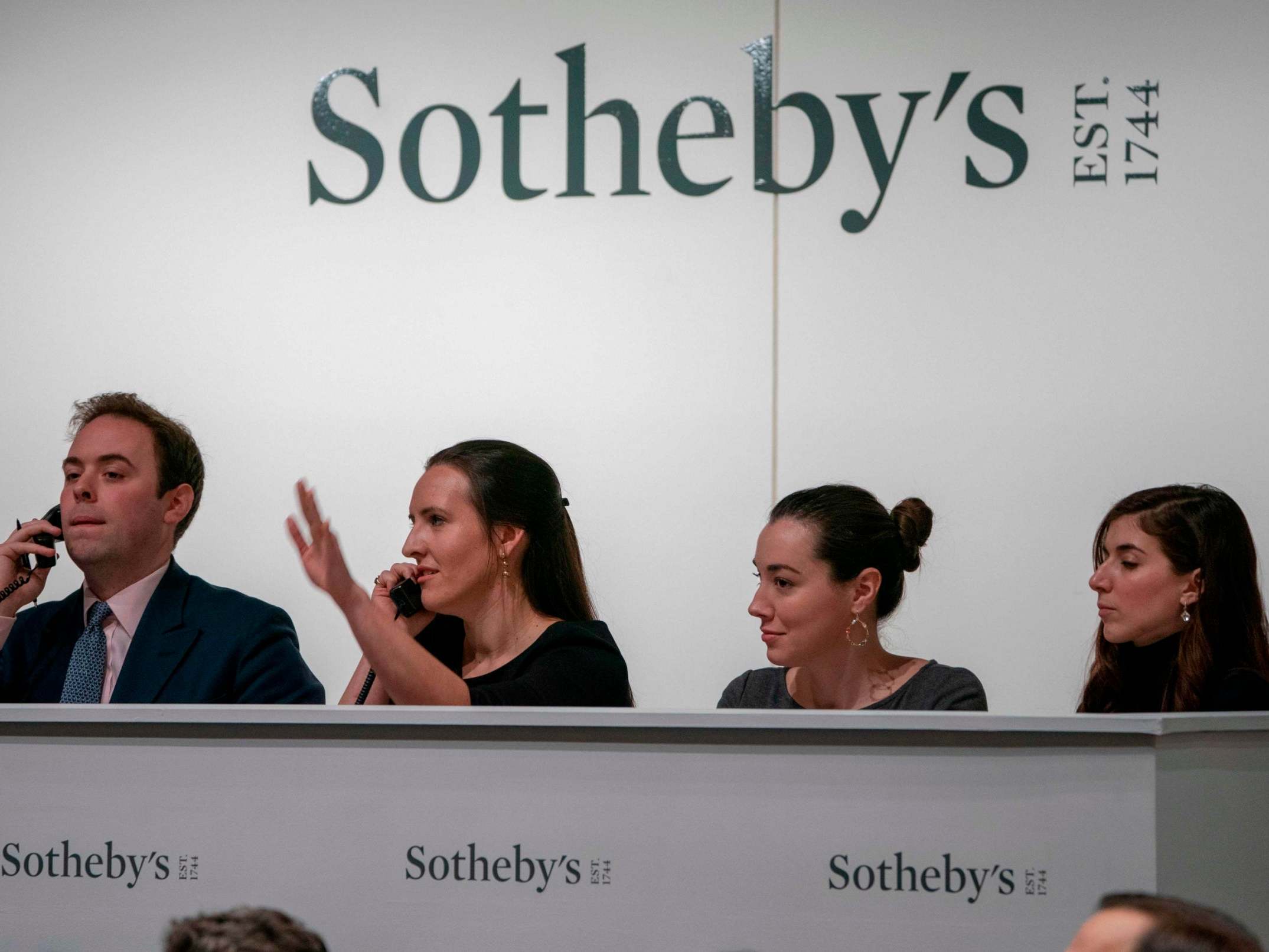The French have bought Sotheby’s. There’s no questioning their dominance of the luxury economy now
French society has an embedded understanding of what rich people really want and right now. Not only is personal wealth booming in the developed world, but there is a whole band of people in the emerging nations to cater to


The French dominate the world of luxury and it is a great business to be in. That is the background to the decision of the French media baron Patrick Drahi to buy Sotheby’s, the London/New York auction house.
It heralds a new bout in the great battle for supremacy in the auction world, where its arch rival Christie’s has been pulling ahead. Last year, Christie’s sold $7bn (£5.5bn) in sales versus $5.2bn for Sotheby’s.
Sotheby’s was a publicly quoted company, on the New York Stock Exchange. Now it becomes a French private company. Since Christie’s is owned by the Groupe Artémis, the French holding group controlled by Francois-Henri Pinault, both major auction houses are French-owned.
Expect the rivalry to intensify in the months and years ahead. But to focus on that would be to miss the bigger story: the triumph of France’s luxury industries.
Six out of the top ten of the world’s luxury brands are French, including the top two, Louis Vuitton and Hermès. If this is extraordinary, it is even more extraordinary that this dominance should date back to the 17th century. Louis XIV’s minister of finance, Jean-Baptiste Colbert, observed in 1665 that: “Fashion is to France what the gold mines of Peru are to Spain,” a reflection on the way the country generated its wealth.
The French Revolution, in a sense a reaction to the emphasis on luxury for the few, inevitably devastated the industries. But they recovered during the 19th century so that by the 1900 Paris Exposition Universelle France represented the pinnacle of civilization.
Now, once again after the humiliation of occupation during the Second World War, France has clawed back to pole position. How?
I think the best answer is that French society has an embedded understanding of what rich people, particularly the newly rich and the aspirant rich, really want. It is a complex relationship between the product and the person. People only buy things that are more expensive than necessary if these things add both to their sense of self-worth, and to the way they are perceived by others.
The new rich of Russia and China are different from the old rich of Europe and the US, and young self-made wealth is different from older inherited wealth. So a careful custodian of luxury brands has to position each of them so that they hit a particular part of the luxury spectrum. It is the genius of Francois-Henri Pinault, and the other great French luxury king, Bernard Arnault, head of LVMH, that they manage to nurture their array of brands to fit each of the segments of the market.

Is this a good business to be in? Right now, it is wonderful. Not only is personal wealth booming in the developed world, but there is a whole band of newly wealthy people in the emerging nations. As Knight Frank has calculated, eight of the top 10 fastest-growing wealthy populations over the next five years will be in Asia.
The question, therefore, is not so much whether personal wealth will continue to rise, but rather whether the new rich of the emerging world will want local rather than foreign (mostly European) brands.
We simply don’t know the answer to that. We know that both China and India have, at past stages of their history excelled at creating luxury products. There seems to be an increasing demand in China for products that relate to their cultural heritage.But whether these trends will eclipse European luxury brands is another matter. We cannot know.
What I think we can be sure of is that French entrepreneurs will be swift to pick up any shift in tastes, and know how to hone their brands to meet that shift. The auction houses are brilliant at making purchasers feel good about the goods they have bought. Expect the tussle between Christie’s and Sotheby’s to hot up as each lures the next generation of the global wealthy through their doors.
Join our commenting forum
Join thought-provoking conversations, follow other Independent readers and see their replies
Comments
Bookmark popover
Removed from bookmarks